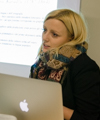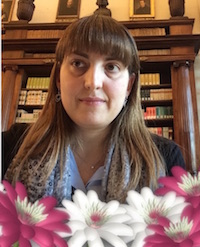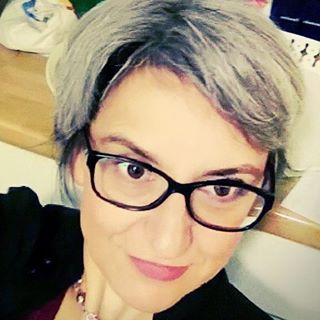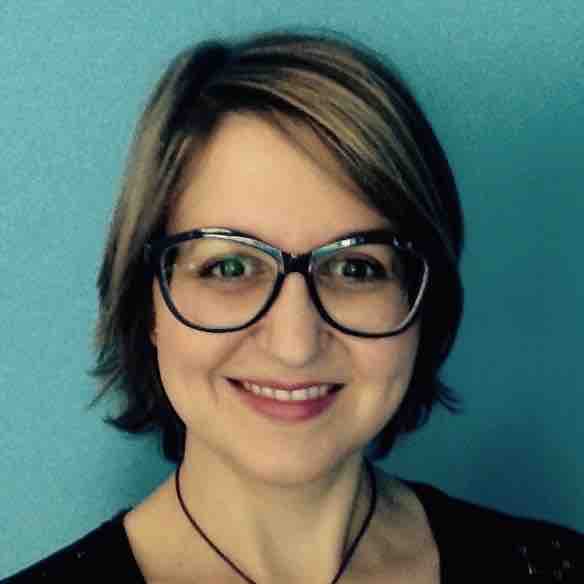Studying at the University of Verona
Here you can find information on the organisational aspects of the Programme, lecture timetables, learning activities and useful contact details for your time at the University, from enrolment to graduation.
Academic calendar
The academic calendar shows the deadlines and scheduled events that are relevant to students, teaching and technical-administrative staff of the University. Public holidays and University closures are also indicated. The academic year normally begins on 1 October each year and ends on 30 September of the following year.
Course calendar
The Academic Calendar sets out the degree programme lecture and exam timetables, as well as the relevant university closure dates..
| Period | From | To |
|---|---|---|
| I semestre | Oct 1, 2018 | Jan 12, 2019 |
| II semestre | Feb 18, 2019 | Jun 1, 2019 |
| Session | From | To |
|---|---|---|
| ESAMI LINGUE- sessione invernale | Jan 14, 2019 | Feb 16, 2019 |
| ESAMI LINGUE- sessione estiva | Jun 3, 2019 | Jul 27, 2019 |
| ESAMI LINGUE- sessione autunnale | Aug 26, 2019 | Sep 21, 2019 |
| Session | From | To |
|---|---|---|
| LAUREE LINGUE - sessione autunnale (a.a. 2017/18) | Nov 12, 2018 | Nov 17, 2018 |
| LAUREE LINGUE - sessione straordinaria (a.a. 2017/18) | Apr 1, 2019 | Apr 6, 2019 |
| LAUREE LINGUE - sessione estiva (a.a. 2018/19) | Jul 8, 2019 | Jul 13, 2019 |
| LAUREE LINGUE - sessione autunnale (a.a. 2018/19) | Nov 4, 2019 | Nov 9, 2019 |
| LAUREE LINGUE - sessione straordinaria (a.a. 2018/19) | Mar 30, 2020 | Apr 4, 2020 |
| Period | From | To |
|---|---|---|
| Festa di Ognissanti | Nov 1, 2018 | Nov 1, 2018 |
| Sospensione dell'attività didattica | Nov 2, 2018 | Nov 3, 2018 |
| Festa dell’Immacolata | Dec 8, 2018 | Dec 8, 2018 |
| VACANZE DI NATALE | Dec 22, 2018 | Jan 6, 2019 |
| VACANZE DI PASQUA | Apr 19, 2019 | Apr 23, 2019 |
| Sospensione dell'attività didattica | Apr 24, 2019 | Apr 24, 2019 |
| Festa della liberazione | Apr 25, 2019 | Apr 25, 2019 |
| Festa del lavoro | May 1, 2019 | May 1, 2019 |
| Sospensione dell'attività didattica | May 20, 2019 | May 20, 2019 |
| Festa del Santo Patrono | May 21, 2019 | May 21, 2019 |
| Festa della Repubblica | Jun 2, 2019 | Jun 2, 2019 |
Exam calendar
Exam dates and rounds are managed by the relevant Foreign Languages and Literatures Teaching and Student Services Unit.
To view all the exam sessions available, please use the Exam dashboard on ESSE3.
If you forgot your login details or have problems logging in, please contact the relevant IT HelpDesk, or check the login details recovery web page.
Academic staff

Bradas Marija
 marija.bradas@univr.it
marija.bradas@univr.it
 paolamaria.caleffi@univr.it
paolamaria.caleffi@univr.it
 cecilia.cantalupi@univr.it
cecilia.cantalupi@univr.it
 raffaele.cutolo@univr.it
raffaele.cutolo@univr.it

Maiolini Elena Valentina
 elena.maiolini@univr.it
elena.maiolini@univr.it
 stella.merlin@univr.it
stella.merlin@univr.it
 sara.paolini@univr.it
sara.paolini@univr.it

Pisaniello Valerio
 valerio.pisaniello@univr.it
valerio.pisaniello@univr.it
 +39 045802 8381
+39 045802 8381
 alberto.scandola@univr.it
alberto.scandola@univr.it
 silvia.zollo@univr.it
silvia.zollo@univr.it
Study Plan
The Study Plan includes all modules, teaching and learning activities that each student will need to undertake during their time at the University.
Please select your Study Plan based on your enrollment year.
1° Year
| Modules | Credits | TAF | SSD |
|---|
1st foreign language2nd foreign language1st foreign literature2nd foreign literature1 module to be chosen among the following2° Year activated in the A.Y. 2019/2020
| Modules | Credits | TAF | SSD |
|---|
1st foreign language2nd foreign language1st foreign literature2nd foreign literature1 module to be chosen among the following3° Year activated in the A.Y. 2020/2021
| Modules | Credits | TAF | SSD |
|---|
1st foreign language2nd foreign language1st foreign literature2nd foreign literature1 module among the following (philology related to 1st or 2nd foreign language)1 module among the following| Modules | Credits | TAF | SSD |
|---|
1st foreign language2nd foreign language1st foreign literature2nd foreign literature1 module to be chosen among the following| Modules | Credits | TAF | SSD |
|---|
1st foreign language2nd foreign language1st foreign literature2nd foreign literature1 module to be chosen among the following| Modules | Credits | TAF | SSD |
|---|
1st foreign language2nd foreign language1st foreign literature2nd foreign literature1 module among the following (philology related to 1st or 2nd foreign language)1 module among the following| Modules | Credits | TAF | SSD |
|---|
Legend | Type of training activity (TTA)
TAF (Type of Educational Activity) All courses and activities are classified into different types of educational activities, indicated by a letter.
English literature 1 [Cognomi A-L] (2018/2019)
Teaching code
4S002926
Teacher
Coordinator
Credits
9
Language
English
Scientific Disciplinary Sector (SSD)
L-LIN/10 - ENGLISH LITERATURE
Period
I semestre dal Oct 1, 2018 al Jan 12, 2019.
Learning outcomes
The course, held in English, aims at intro-ducing the students to English literature (from the Victorian to the contemporary period), with specific reference to a selec-tion of canonical texts, and at presenting methodological approaches for the analy-sis of literary texts and genres. The course aims at providing a good knowledge of British literature (articulated in historical context, texts, genres, literary trends and authors) and the skills for a critical analysis and argumentation on different kinds of texts in their historical and cultural context.
At the end of the course, students will be able to:
- Analyse the literary texts of the programme in their historical and cultural context;
- Apply an aware critical approach to literary texts and present an argumen-tation which shows knowledge of literary conventions
- Express the acquired literary and critical competence in English clearly and coherently.
Program
PERFORMING IDENTITIES IN LITERATURE AND POPULAR CULTURE
The course presents the articulation of identity in literary texts from the Victorian to the contemporary period. The approach will be interdisciplinary (literature, culture, law) and focussed on the revision of the literary tradition (in particular the fantastic and popular culture).
A) Primary Texts (any edition, but NOT abridged)
J.M. Barrie, Peter Pan (1902)
P. Lyndon Travers, Mary Poppins (1934)
J.K. Rowling, Harry Potter and the Philosopher's Stone (1997)
Emma Donoghue, Kissing the Witch (1997)
B) Critical Texts
- Anne McLeer, “Practical Perfection? The Nanny Negotiates Gender, Class, and Family Contradictions in 1960s Popular Culture”. NWSA Journal, 14.2 (2002), 80-101 (le parti indicate durante il corso)
- Monique Chassagnol, "Masks and Masculinity in James Barrie's Peter Pan", in John Stephens, ed., Ways of Being Male. Representing Masculinities in Children's Literature and Film, New York and London, Routledge, 2002, pp. 200-215
- Annette Wannamaker, "Men in Cloaks and High-heeled Boots, Men Wielding Pink Umbrellas: Witchy Masculinities in the Harry Potter Novels", Chapter 5 of Boys in Children's Literature and Popular Culture: Masculinity, Abjection, and the Fictional Child, New York, Routledge, 2012, pp. 121-147.
- J. Zipes, Why Fairy Tales Stick (pp. 1-45)
- J. Storey, “What is Popular Culture?”, in Cultural Theory and Popular Culture: An Introduction, Routledge, 2018
- B. Bettelheim, The Uses of Enchantment, New York, Vintage Books, 1989 (paragraphs: Fairy Tales and the Existential Predicament", "The Child's Need for Magic")
C) History of Literature (From the Victorian period to the contemporary period)
- A. Sanders, The Short Oxford History of English Literature, Oxford University Press, 2003
NB: the programme will be integrated at the beginning of the course
| Author | Title | Publishing house | Year | ISBN | Notes |
|---|---|---|---|---|---|
| J.K. Rowling | Harry Potter and The Philosopher's Stone | 1997 | |||
| Emma Donoghue | Kissing the Witch | 1997 | |||
| P. Lyndon Travers | Mary Poppins | 1934 | |||
| Monique Chassagnol | , "Masks and Masculinity in James Barrie's Peter Pan", in John Stephens, ed., Ways of Being Male. Representing Masculinities in Children's Literature and Film, New York and London, Routledge, 2002, pp. 200-215 | 2002 | |||
| J.M. Barrie | Peter Pan | 1911 | |||
| Anne McLeer | “Practical Perfection? The Nanny Negotiates Gender, Class, and Family Contradictions in 1960s Popular Culture”. NWSA Journal, 14.2 (2002), 80-101 | 2002 | |||
| Andrew Sanders | The Short Oxford History of English Literature | Oxford, Oxford University Press | 1994 | ||
| Bruno Bettelheim | The Uses of Enchantment, New York, Vintage Books, 1989 (paragraphs: Fairy Tales and the Existential Predicament", "The Child's Need for Magic") | 1989 | |||
| John Storey | “What is Popular Culture?”, in Cultural Theory and Popular Culture: An Introduction, Routledge, 2018 | 2018 | |||
| Jack Zipes | Why Fairy Tales Stick, London, Routledge, 2006 (pp. 1-45) | 2006 |
Examination Methods
The lessons will be in English. The exam will be an oral discussion in English on the topic of the course and the texts in the program (parts A,B,C).
In particular:
- the ability to discuss topics (literary trends, authors, genres) within the history of English literature
- the ability to present a critical argumentation on topics related to the texts of the syllabus (making examples from scenes and passages)
- the ability to make connections between the topics of the course, on the basis of the critical texts indicated in the programme
Requirements
Students unable to attend lectures are required to get in touch before preparing for the exam.
All students, possibly also the students who will not be able to attend the course regularly, are kindly invited to attend the first class of the course, when the programme will be illustrated in detail.
Type D and Type F activities
To discover all the teaching activities accredited by the foreign teaching college click here
Career prospects
Module/Programme news
News for students
There you will find information, resources and services useful during your time at the University (Student’s exam record, your study plan on ESSE3, Distance Learning courses, university email account, office forms, administrative procedures, etc.). You can log into MyUnivr with your GIA login details: only in this way will you be able to receive notification of all the notices from your teachers and your secretariat via email and also via the Univr app.
Gestione carriere
Attendance and location
Attendance is not mandatory.
More detailed information on attendance requirements, please refer to the “Regolamento del corso di studio”, available under the “Regolamenti” section in “Il Corso”. While the Student Handbook does not require mandatory attendance, it is recommended to confirm specific attendance policies with your professors for each course, lab, or practical training.
Part time enrolment is an option. For more information, visit the Possibilità di iscrizione Part time.
Classrooms and exam locations are:
Classes and exams are held at the following locations:
- Polo Zanotto (close to the Foreign Languages and Literatures building)>
- Polo Santa Marta
Student login and resources
Assegnazione tutore
Attività accreditate D/F
Calendario didattico dettagliato
Cambio lingua curriculare
Competenze informatiche
Competenze linguistiche (prima e seconda lingua)
Competenze linguistiche in triennale (terza lingua CFU F)
Compilazione del piano didattico
Corso di Lingua catalana a.a. 2024-25
Corso di Lingua portoghese
Erasmus+ e altre esperienze all'estero
Linguistic training CLA
Presentazione dei corsi di studio e Open day
Graduation
Saperi minimi
Stage e tirocini
Le attività di stage sono finalizzate a far acquisire allo studente una conoscenza diretta in settori di particolare interesse per l’inserimento nel mondo del lavoro e per l’acquisizione di abilità professionali specifiche.
Le attività di stage sono svolte sotto la diretta responsabilità di un singolo docente presso studi professionali, enti della pubblica amministrazione, aziende accreditate dall’Ateneo veronese.
I crediti maturati in seguito ad attività di stage saranno attribuiti secondo quanto disposto nel dettaglio dal “Regolamento d’Ateneo per il riconoscimento dei crediti maturati negli stage universitari” vigente.
- Tutte le informazioni in merito agli stage per futuri studenti sono disponibili alla pagina Stage e tirocini.
- Tutte le informazioni in merito agli stage per studenti iscritti sono pubblicate in MyUnivr - come fare per - stage e tirocini.
- Tutte le informazioni in merito agli stage per le aziende sono disponili alla pagina Stage e tirocini per azienze.
Ulteriori informazioni al seguente link https://www.univr.it/it/i-nostri-servizi/gestione-carriere-studenti-lingue-e-letterature-straniere/stage-e-tirocini-lingue-e-letterature-straniere


















































